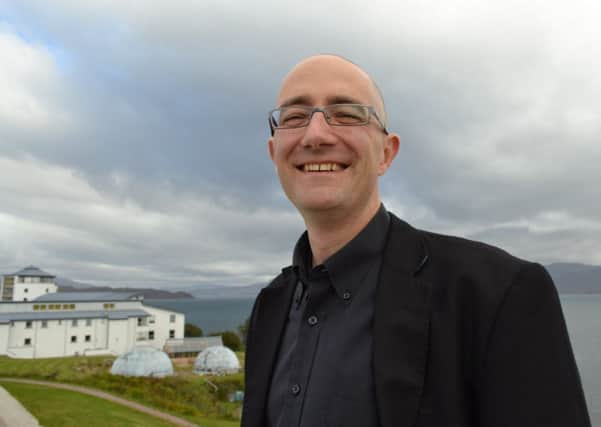How to run a local, interplanetary book festival


Or that Alison Kennedy is always going to leave them wondering what it must be like to have a mind sharper than a Sabatier knife. Or that William McIlvanney will inevitably make them wonder what it must feel like to be treasured by an entire nation.
All three were on spectacular form at Ullapool’s tenth book festival last weekend, but for the purposes of this piece, I am – unfairly, admittedly – going to take that as given. What I want to look at instead are the unpredictably good events, the wrongly overlooked, and the markers to where writing might go next. Every good book festival should have a few of them.
Advertisement
Hide AdWhich is why, at teatime last Sunday, I found myself listening to Tim Armstrong (inset) reading the first Gaelic science fiction novel written for adults. In it, a group of Gaelic-speaking alien musicians land in San Francisco. They can’t understand English, and Armstrong has got to show this, but he also needs to let his readers understand what the San Franciscans are saying. How does he do this without using English? (I’ll give you a paragraph to work it out: carry on reading.)
Now, Armstrong is speaking in a language I can only understand because I’m wearing a headset in which it is simultaneously translated by Morag Stewart, whose softly seductive Uist accent is whispering words like “f***wit” and “get your arse over here” into my ears – Armstrong’s Gaelic space story is particularly strong on the vernacular. (“F***wit tends not to be the sort of word used doing translation work for the council, so it was a first for me too,” she told me later).
All of which is quite enough to mess with your head without working out that (here’s the answer) the San Franciscans reacting to the Gaelic aliens speak English, which is rendered in Gaelic orthography. Thus the Gaelic word “dùd” is pronounced “dude”, which is how Armstrong’s San Franciscans address each other.
Sometimes we monoglots forget how wonderful it is that Gaelic lives on in this country. I’ve never felt that as strongly as at this event, my first experience of simultaneous translation, and an entirely positive one. Armstrong, who is from Seattle, later told me that he became obsessed with the language while following Gaelic punk bands during his time in Edinburgh. What are the odds?
As if to prove that all this Gaelic inventiveness isn’t a one-off, he shared a stage with Lewisman Andrew Dunn, who read out what sounded like an impressive novel about the 51st Highland Division. His next one is a detective story set in a contemporary Britain in which, way back in 1066, history has gone off in an altogether different direction and the Highland Scots rule Britain from Dunfermline. This, by the way, is emphatically not paradise.
More surprises? OK. Do you realise how seriously good and underrated Cynthia Rogerson’s fiction is? Or how completely the irrepressible Glenn Patterson, both in person and on the page, overturns the image of the dour Belfast Protestant? And – confession time – I now realise why not reviewing Matthew Zajac’s The Tailor Of Inverness on these pages was one of our more serious sins of omission last year. Read it.
Advertisement
Hide AdI’ve met Mike Russell, a journalist on the West Highland Free Press, at previous Ullapool book festivals, but only at this one, where he gave a reading from his work – inventive, restrained, unpredictable and wide-ranging – did I realise that he was a fine writer too. Half-a-dozen well established writers in the audience left Russell’s event saying the same thing.
The fact that they were in the audience in the first place is one of the things that makes Ullapool such a special book festival. The programme only has one event on at a time, so both writers and audience often drift together through the whole day’s proceedings. There’s no green room before, no signing tent afterwards, separating public from performer.
Advertisement
Hide AdAdd the setting, stir in an international guest or two (in this case, Cape Breton novelist Frank Macdonald and Canadian First Nation poet Lindsay Marshall), put on a ceilidh along with the usual efficiently organised proceedings (take a bow, Joan Michael) and you have a recipe for a near-perfect weekend. If you missed it this year, make sure you don’t do so again.